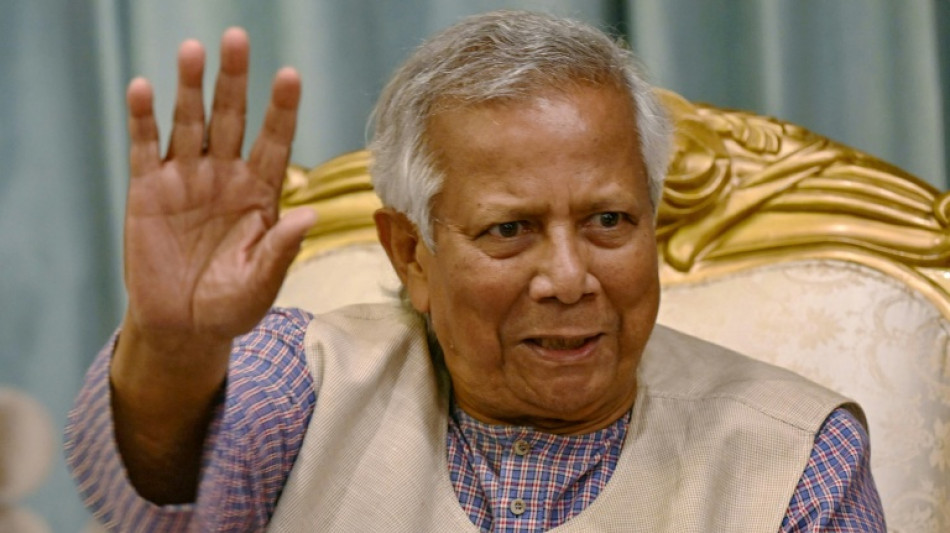
-
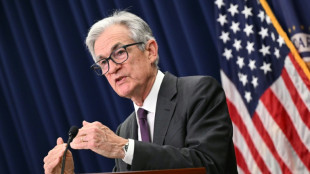 Asia stocks mixed after Wall St hits new highs
Asia stocks mixed after Wall St hits new highs
-
Cash-strapped Taliban look to airspace for windfall

-
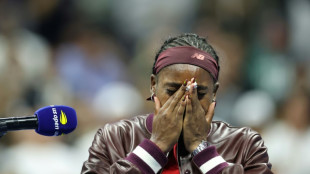 Biles' presence helps Gauff win US Open crying game
Biles' presence helps Gauff win US Open crying game
-
'Female power': Japan erotic art destigmatised in new exhibit
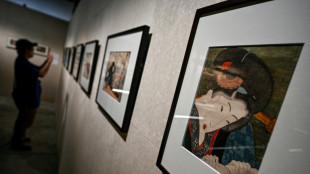
-
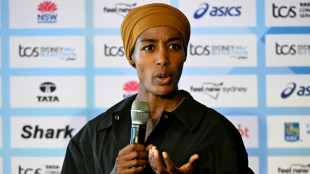 Olympic marathon champion Hassan opts for Sydney ahead of worlds
Olympic marathon champion Hassan opts for Sydney ahead of worlds
-
Atletico already playing catch-up after poor La Liga start

-
 Lyon find cause for optimism after turbulent summer
Lyon find cause for optimism after turbulent summer
-
Sinner on the march as tearful Gauff, Swiatek toil at US Open
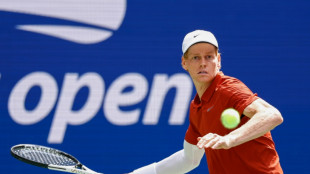
-
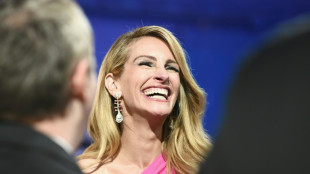 Julia Roberts to make Venice debut in cancel culture drama
Julia Roberts to make Venice debut in cancel culture drama
-
Big numbers set to remain a feature of Women's Rugby World Cup

-
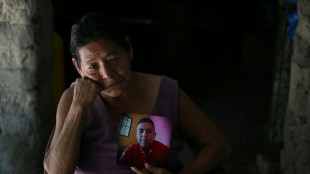 Families lose hope for Salvadorans held in gang crackdown
Families lose hope for Salvadorans held in gang crackdown
-
Trump thumbs nose at decades of India courtship
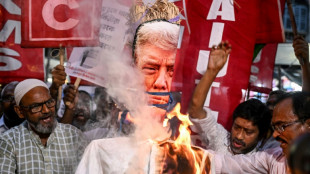
-
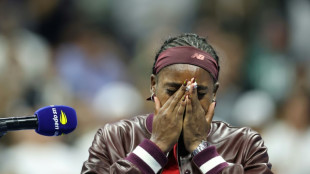 Gauff wins crying game to reach US Open third round
Gauff wins crying game to reach US Open third round
-
Arsenal seek statement win at Liverpool, Amorim faces Burnley must-win

-
 Cowboys trade Parsons to Packers in blockbuster NFL deal
Cowboys trade Parsons to Packers in blockbuster NFL deal
-
Russian attack killing 23 in Kyiv unleashes international fury
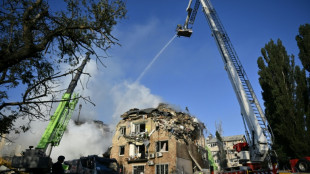
-
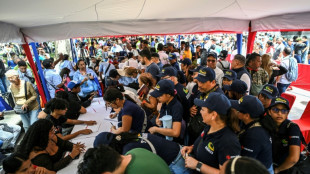 Venezuela revives heroes with AI to spur reservists on US 'threat'
Venezuela revives heroes with AI to spur reservists on US 'threat'
-
Solskjaer sacked by Besiktas after European flop
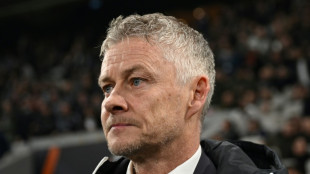
-
 Froome to undergo surgery after breaking back in training crash
Froome to undergo surgery after breaking back in training crash
-
Trump moves to end US tariff exemption for small packages
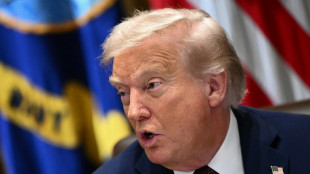
-
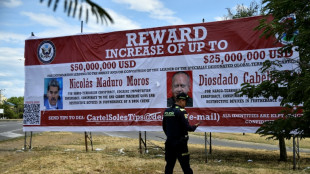 US targets Venezuela over 'Soles' cartel. Does it exist?
US targets Venezuela over 'Soles' cartel. Does it exist?
-
Coe hails 'overwhelming support' for gene testing ahead of Tokyo worlds

-
 Solskjaer fired by Besiktas after Conference League failure, Palace squeeze through
Solskjaer fired by Besiktas after Conference League failure, Palace squeeze through
-
Osaka slams Ostapenko rant in US Open 'racism' storm
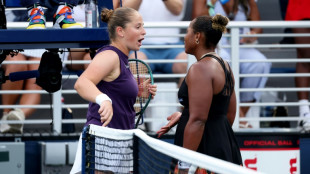
-
 Rubio to visit Mexico, Ecuador next week to discuss migration, China
Rubio to visit Mexico, Ecuador next week to discuss migration, China
-
US church shooter 'obsessed with idea of killing children'
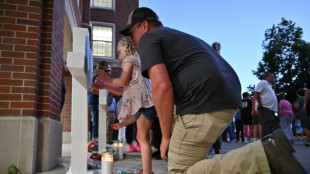
-
 US stocks reach new peaks as investors digest US GDP
US stocks reach new peaks as investors digest US GDP
-
US approves $825 mn missile sale to Ukraine
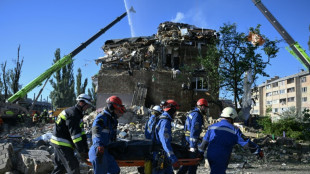
-
 Rubio to visit Mexico, Ecuador next week to discuss migration, China: US
Rubio to visit Mexico, Ecuador next week to discuss migration, China: US
-
Lyles edges Tebogo in Zurich thriller in perfect Tokyo boost
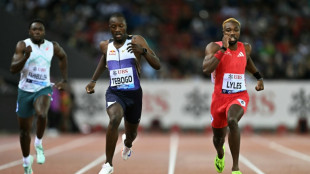
-
 Lyles trumps Tebogo in Zurich, Alfred shines
Lyles trumps Tebogo in Zurich, Alfred shines
-
Arsenal optimistic about Havertz return after knee surgery

-
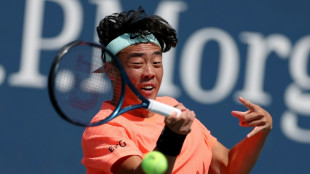 Pressure-free Wong relishing US Open adventure
Pressure-free Wong relishing US Open adventure
-
RFK Jr bashes US health agency after its chief is sacked
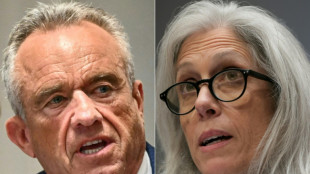
-
 Swiatek wobbles at US Open as Sinner targets third round
Swiatek wobbles at US Open as Sinner targets third round
-
Alfred storms to 100m victory at Diamond League finals

-
 Bison herds 'reawaken' Yellowstone's prairies
Bison herds 'reawaken' Yellowstone's prairies
-
RFK Jr bashes US health agency after firing its chief
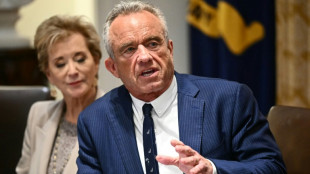
-
 Swiatek labours into US Open third round
Swiatek labours into US Open third round
-
UN sets 2027 exit for Lebanon peacekeepers after Israeli strikes

-
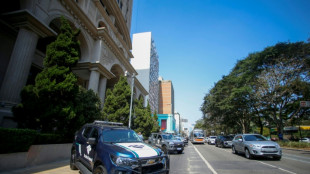 Brazil police target network that siphoned billions from fuel sector
Brazil police target network that siphoned billions from fuel sector
-
Liverpool and Man City face Real Madrid in Champions League, PSG get tough draw

-
 'Strangest' dinosaur covered in spiked armoury: scientists
'Strangest' dinosaur covered in spiked armoury: scientists
-
UN Security Council votes for Lebanon peacekeepers to leave in 2027

-
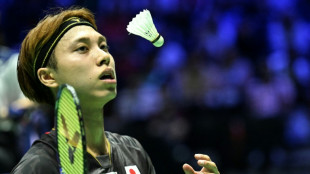 Badminton federation smoothes feathers ruffled by shuttlecock shortage
Badminton federation smoothes feathers ruffled by shuttlecock shortage
-
Luxury carmaker Lotus to slash UK jobs amid US tariffs
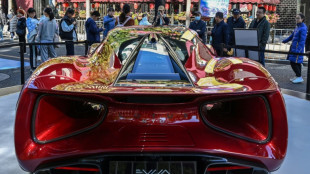
-
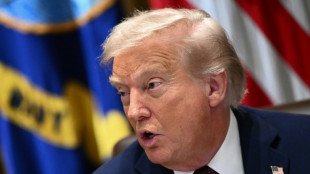 Small parcels in limbo as Trump moves to end US tariff exemption
Small parcels in limbo as Trump moves to end US tariff exemption
-
Russian attack killing 19 in Kyiv unleashes international fury
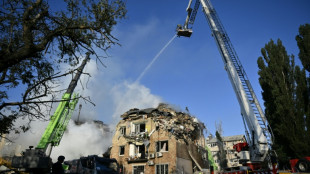
-
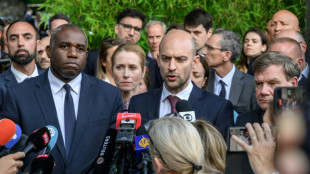 Europe powers move to reimpose Iran sanctions over nuclear drive
Europe powers move to reimpose Iran sanctions over nuclear drive
-
UN chief condemns 'endless' Gaza horrors as Israel presses offensive
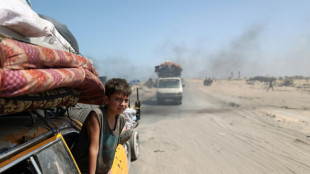

Ban on ousted ex-ruling party divides Bangladesh voters
The banning of fugitive ex-leader Sheikh Hasina's party offers a sliver of justice for Bangladeshis demanding she face trial for crimes against humanity but also raises concerns about the inclusivity of elections.
"The government has taken the right decision," said Jahangir Alam, whose 19-year-old son was killed during the mass uprising that forced Hasina into exile in August 2024, ending the 15 years of iron-fisted control by her once all-powerful Awami League party.
"Because of her, the Awami League is now ruined," Alam said, demanding Hasina return from India to comply with the arrest warrant on charges related to the crackdown that killed at least 1,400 protesters.
"Who gave Sheikh Hasina the authority to kill my son?" said Alam, the father of Ibrahim Hossain Zahid, accusing 77-year-old Hasina of being a "mass murderer".
Bangladesh's oldest political party played a key role in the country's liberation war from Pakistan in 1971 and was once led by Hasina's late father, the nation's founding figure, Sheikh Mujibur Rahman.
"People used to hang Mujib's photo over their heads," he said. "Because of Sheikh Hasina's wrongdoing, that photo is now under our feet."
- 'Democratic space may shrink' -
Political fortunes rise and fall quickly in Bangladesh.
Hasina's government was blamed for extensive human rights abuses and protesters demanded that the interim government led by Nobel Peace Prize winner Muhammad Yunus take action.
The South Asian nation of some 170 million people last held elections in January 2024, when Hasina won a fourth term in the absence of genuine opposition parties.
Yunus promises that inclusive elections will be held by June 2026 at the latest.
Among those demanding the Awami League ban was the National Citizen's Party made up of many of the students who spearheaded last year's uprising.
Others were supporters of the Hefazat-e-Islam group and Jamaat-e-Islami, the largest Islamist political party.
Jamaat-e-Islami was banned during Hasina's time in power and several of its leaders were tried and hanged. Unsurprisingly, its members were vocal supporters of the ban.
The government banned the Awami League on May 12 after protests outside Yunus's home, pending the trial of Hasina.
"The oppressed have begun becoming oppressors," said Latif Siddiqui, a veteran Awami League member and former minister, adding that the party was wider than Hasina alone.
"She is not the whole Awami League," he said. "Many loved the party."
Human Rights Watch issued stinging criticism on Thursday, warning that "imposing a ban on any speech or activity deemed supportive of a political party is an excessive restriction on fundamental freedoms that mirrors the previous government's abusive clampdown".
However, political analyst Farhad Mazhar, an ideological guru for many student protesters, said the ban was required.
"The democratic space may shrink, but the Awami League has shown no remorse," Mazhar said.
- 'Stripping the voting rights' -
However, Jatiya Party chairman GM Quader said that banning any party stifled democracy.
"We believe in multi-party democracy," he said.
His party had been close with the Awami League under Hasina, Quader said, but it had also opposed the ban on Jamaat-e-Islami.
"We don't support banning any political party that... follows the rules," Quader said.
Jamaat-e-Islami supported Islamabad during Bangladesh's independence war from Pakistan in 1971. Rivals now question if it, too, should be restricted for its historical role.
"If the Awami League is banned for mass murder, then the question arises -- what will happen to those parties that were involved in genocide, directly or indirectly?" Quader said.
"In the history of Bangladesh, the most people were killed during the Liberation War."
The Bangladesh Nationalist Party (BNP), widely tipped to win the elections when they happen, has taken a more pragmatic approach.
Key leader Amir Khasru Mahmud Chowdhury has said there is no bar on former Awami League loyalists joining his party, so long as they had not previously worked to "suppress" the BNP.
Regardless, the upcoming vote will now take place without what was one of Bangladesh's most popular parties.
Mamun Al Mostofa, professor of political science at Dhaka University, pointed out the party had been "banned before and went through severe crises... but it made a comeback".
Shahdeen Malik, a Supreme Court lawyer and constitutional expert, said a strong opposition helped support democracy.
"AL had a vote bank of around 30 percent of the total electorate," Malik said, noting that Hasina escalated her grip on power after crushing opponents in the 2008 election.
"Due to their atrocities, they may have lost some of that support -- but it is still unlikely to drop below 20 percent," he said.
"Stripping the voting rights of this 20 percent won't benefit anyone."
J.AbuHassan--SF-PST
